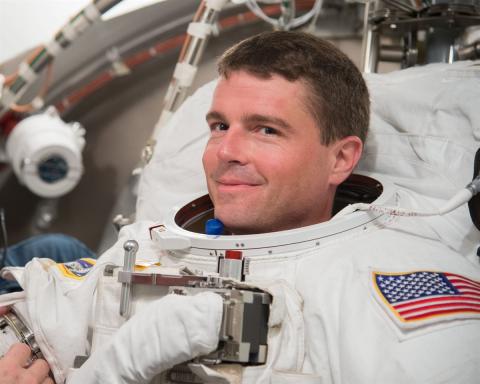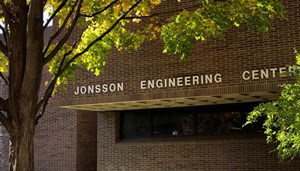
RPI Engineers explore the cosmos, with or without gravity.
Rensselaer’s contributions to space exploration are widely known and celebrated. The announcement that School of Engineering alumnus Reid Wiseman ’97 will command the upcoming Artemis II mission – which will pave the way for NASA’s return to the moon – brings us full circle, because prior to becoming RPI’s former president, George M. Low ’48, G’50, managed the Apollo program, which put the first men on the moon. In between, a number of our alumni have been named astronauts, and many faculty and alumni have worked on the Mars rover programs.
But space exploration begins on Earth. For every person floating in the International Space Station (ISS), there are hundreds working on solid ground to ensure their success and safety and to design and analyze the experiments they conduct.
Sandeep Singh, assistant professor of mechanical, aerospace, and nuclear engineering (MANE), leads the Advanced Space Concepts Lab (ASCLab) in tackling challenges related to space mission design and implementation. New assistant professor Leonid Pogorelyuk specializes in orbital mechanics, optics, discovery, and imaging of exoplanets.
A number of faculty are conducting biomedical research in space. Elizabeth Blaber, assistant professor of biomedical engineering, is investigating the brain-liver-gut axis during spaceflight and aging as part of NASA’s Space Biology program. Amir Hirsa, a professor MANE, and Patrick Underhill, professor of chemical and biological engineering, are studying the physics of protein solutions using the ring-sheared drop module aboard the ISS.
With funding from the National Science Foundation, Joel Plawsky, a professor of chemical engineering, is leveraging microgravity to better understand the vapor-liquid interfaces of organic mixtures used in heat pipes on the ISS in the hope of improving the performance of electronic devices here on Earth.
While MANE has a long tradition of preparing future space researchers through its aeronautical engineering program, it will soon offer an aerospace engineering degree. But if your approach is more DIY, consider the Rensselaer Rocket Society, a campus club that expects to conduct their own suborbital launch next year.
